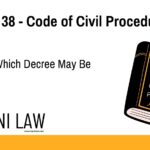Introduction
The Motor Vehicles Act, originally enacted in 1988 and significantly amended in 2019, is the cornerstone legislation governing all aspects of road transport and motor vehicle usage in India. This law regulates the licensing of drivers and conductors, registration of motor vehicles, control of traffic, construction and maintenance of vehicles, and most importantly, motor vehicle insurance and liability. The primary objective of the Act is to ensure road safety, establish legal responsibilities, and protect the rights of victims involved in road accidents.
Over the years, with the rapid increase in vehicular traffic and road accidents, the Act has evolved to address modern challenges. The 2019 amendment introduced stricter penalties for traffic violations, mandated technology-based enforcement systems, and reinforced third-party insurance norms. One of the key pillars of the Act is the requirement for all motor vehicles to be insured against third-party risks, ensuring that victims of accidents receive fair and timely compensation, even when the offending driver cannot pay.
What Are The Insurance Policy Requirements and Liability Limits under Motor Vehicle Law
To meet the legal requirements under the Motor Vehicles Act, every vehicle owner must ensure their insurance policy aligns with specific conditions. Firstly, the policy must come from an authorised insurer. It should cover the policyholder or any specified persons against liabilities related to death, bodily injury, or property damage caused by using a motor vehicle in a public place. This includes protection for passengers, owners of goods, or their authorised representatives, but excludes gratuitous passengers in goods vehicles.
Even if the injured person or damaged property wasn’t physically present in a public place, liability still applies if the accident’s cause occurred in a public space.
The Central Government, in consultation with the Insurance Regulatory and Development Authority (IRDAI), will set the base premium and insurer liability for third-party insurance related to death or grievous injury.
An insurance policy is valid only if the insurer issues a certificate of insurance. This certificate must include all prescribed conditions and required particulars. Any insurance policy issued before the 2019 Amendment will continue under its original terms, unaffected by the changes in the new law.
If a cover note is not followed by an actual policy within the allowed period, the insurer must notify the registering authority within seven days. Lastly, the insurer must indemnify the individuals or groups covered under the policy for any liabilities it claims to insure.
Recent Case
In a recent landmark judgment dated May 5, 2025, the Supreme Court of India ruled in Royal Sundaram Alliance Insurance Co. Ltd. vs. Smt. Honnamma & Ors. that an insurer cannot deny third-party compensation simply because a trailer attached to an insured tractor was not separately insured. The Court held that a tractor and its trailer must be treated as a single vehicle for liability purposes under the Motor Vehicles Act. The insurer was directed to pay ₹9.5 lakh as per the policy terms and was allowed to recover any excess amount from the vehicle owner.
The Court emphasized that the Act serves a social welfare purpose and technical exclusions cannot defeat the rights of accident victims. This ruling sets a strong precedent, ensuring that victims receive fair compensation promptly, even if insurers attempt to avoid liability on technical grounds. The decision reinforces the need for insurers and vehicle owners to honor third-party obligations under the law.
Conclusion
In conclusion, compliance with insurance policy requirements is vital under motor vehicle laws. It ensures financial protection for victims and accountability for vehicle owners. Vehicle owners must secure valid insurance and maintain all necessary documentation to stay legally protected.








